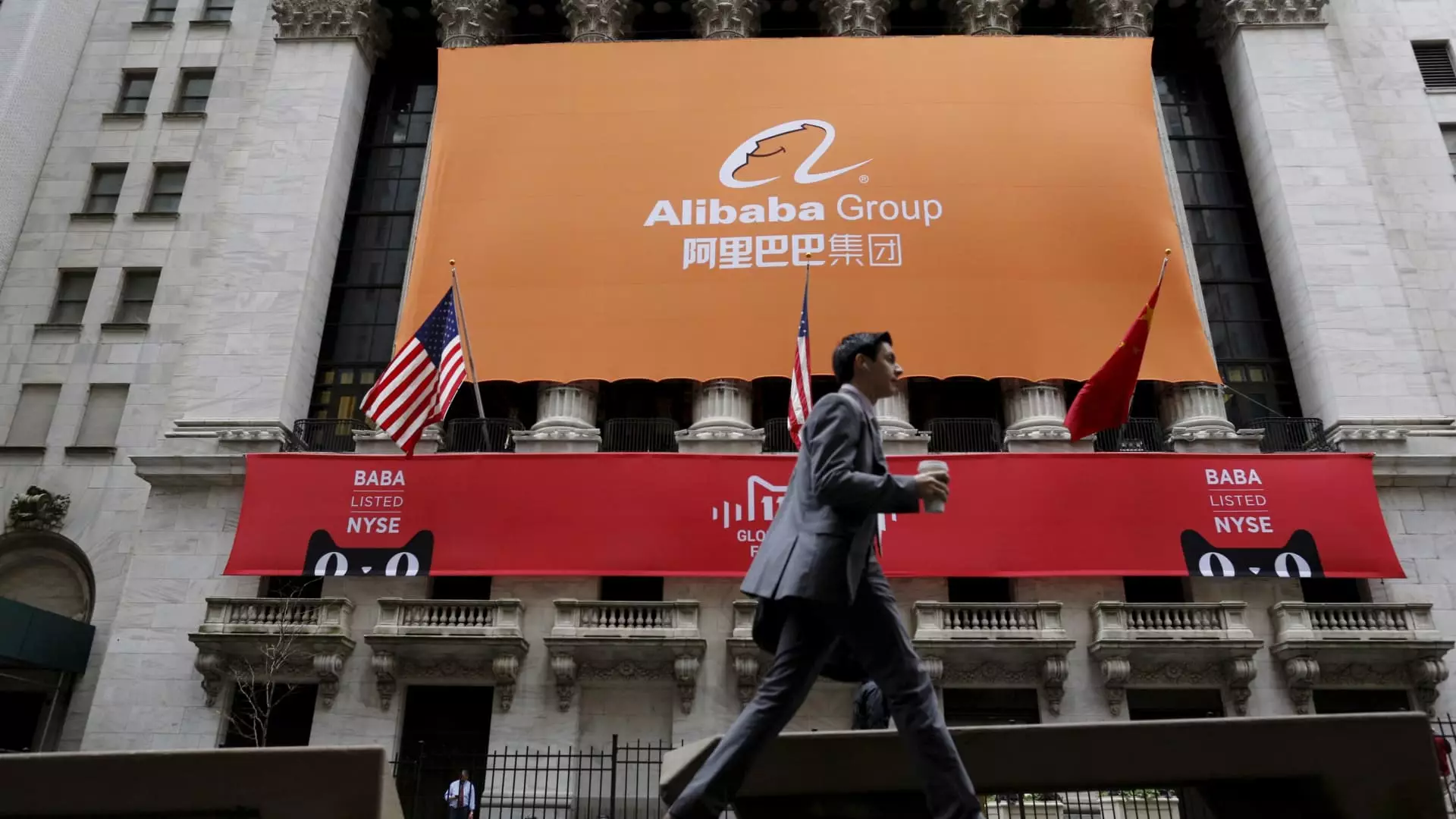Alibaba, one of the largest e-commerce companies in the world, has faced some challenges in recent months. While founder Jack Ma expressed satisfaction with the company’s turnaround, Wall Street analysts have been less optimistic. Concerns about the amount of money Alibaba is currently spending on investments, particularly in core operations such as domestic and international e-commerce and cloud services, have led JPMorgan to lower its earnings forecasts. According to China Internet Analyst Alex Yao and a team at JPMorgan, these investments have prompted a reduction in the price target for Alibaba’s stock to $100, down from $105. While this new target still represents a significant increase from the current share price, it reflects a cautious outlook on the company’s future performance.
In response to these challenges, Alibaba has made significant changes to its management team. Jack Ma stepped down as chairman in 2019, and Joe Tsai, the current Chair, has expressed confidence in the company’s ability to remain a top player in the e-commerce industry. Eddie Wu became CEO of Alibaba in September, succeeding Trudy Dai as head of the Taobao and Tmall e-commerce business. However, these changes have not been without their own obstacles. The company has had to cancel plans for the IPO of its cloud business and logistics arm Cainiao, acknowledging past mistakes in its approach to user experience and organizational structure. Despite these setbacks, Alibaba remains committed to its new business strategy, which it believes will lead to improved financial results in the long term.
Competition and Innovation in the Market
Alibaba faces stiff competition in the e-commerce industry, particularly from apps like PDD Holdings’ Pinduoduo and ByteDance’s Douyin. These emerging competitors have challenged Alibaba’s dominance in the Chinese market, forcing the company to adapt and innovate in order to stay ahead. In the realm of artificial intelligence, Alibaba has been working to integrate AI tools and models into its e-commerce and cloud businesses. However, according to reports, the company’s AI chatbot Tongyi Qianwen lags behind competitors like ByteDance’s Doubao in terms of user popularity and engagement. This highlights the need for Alibaba to continue investing in AI research and development in order to remain competitive in this rapidly evolving field.
Despite the challenges Alibaba faces, analysts like UBS remain cautiously optimistic about the company’s future. While near-term financial metrics may be weak due to ongoing investments in core operations, there is potential for significant growth in the second half of the year if macroeconomic conditions improve. However, concerns about the pace of business transformation and the competitive landscape of the e-commerce industry persist. Morgan Stanley’s Gary Yu and his team have maintained a price target of $85 for Alibaba, underscoring the uncertainty surrounding the company’s performance in the coming months.
Alibaba’s recent struggles underscore the complex challenges facing one of the world’s largest e-commerce companies. Management changes, intense competition, and the need for continued innovation in AI all present significant hurdles for Alibaba to overcome. While the company remains optimistic about its ability to navigate these challenges, it will require careful planning and strategic decision-making to ensure its long-term success in the evolving e-commerce landscape.

